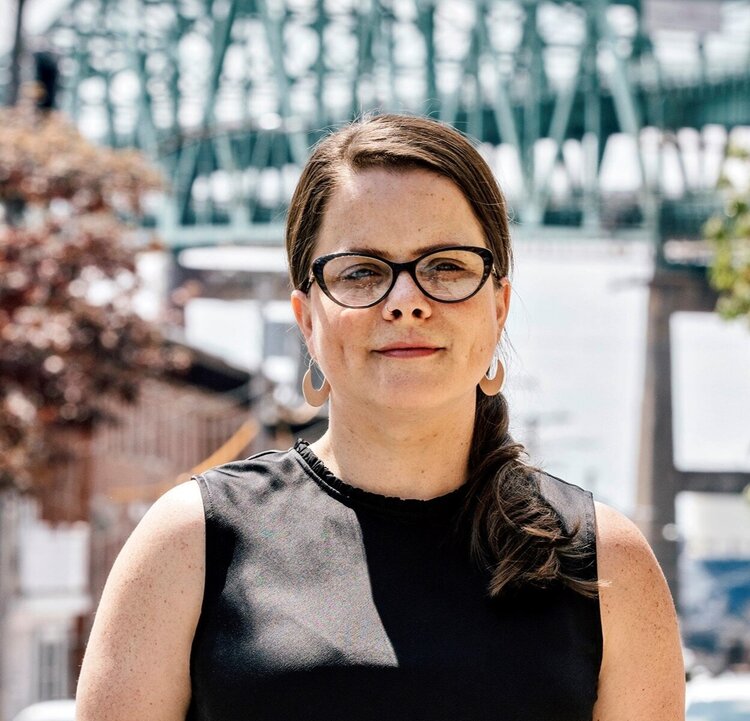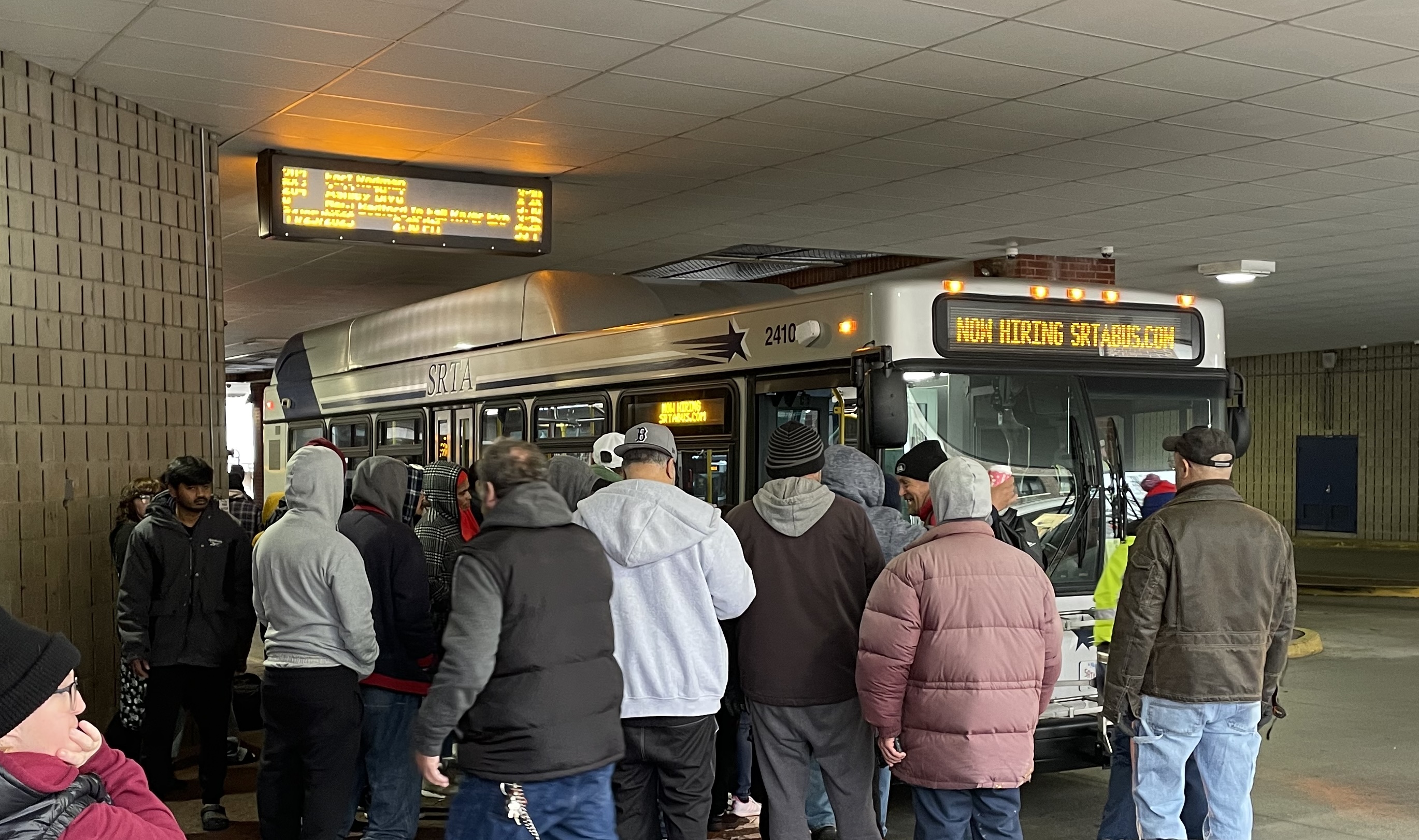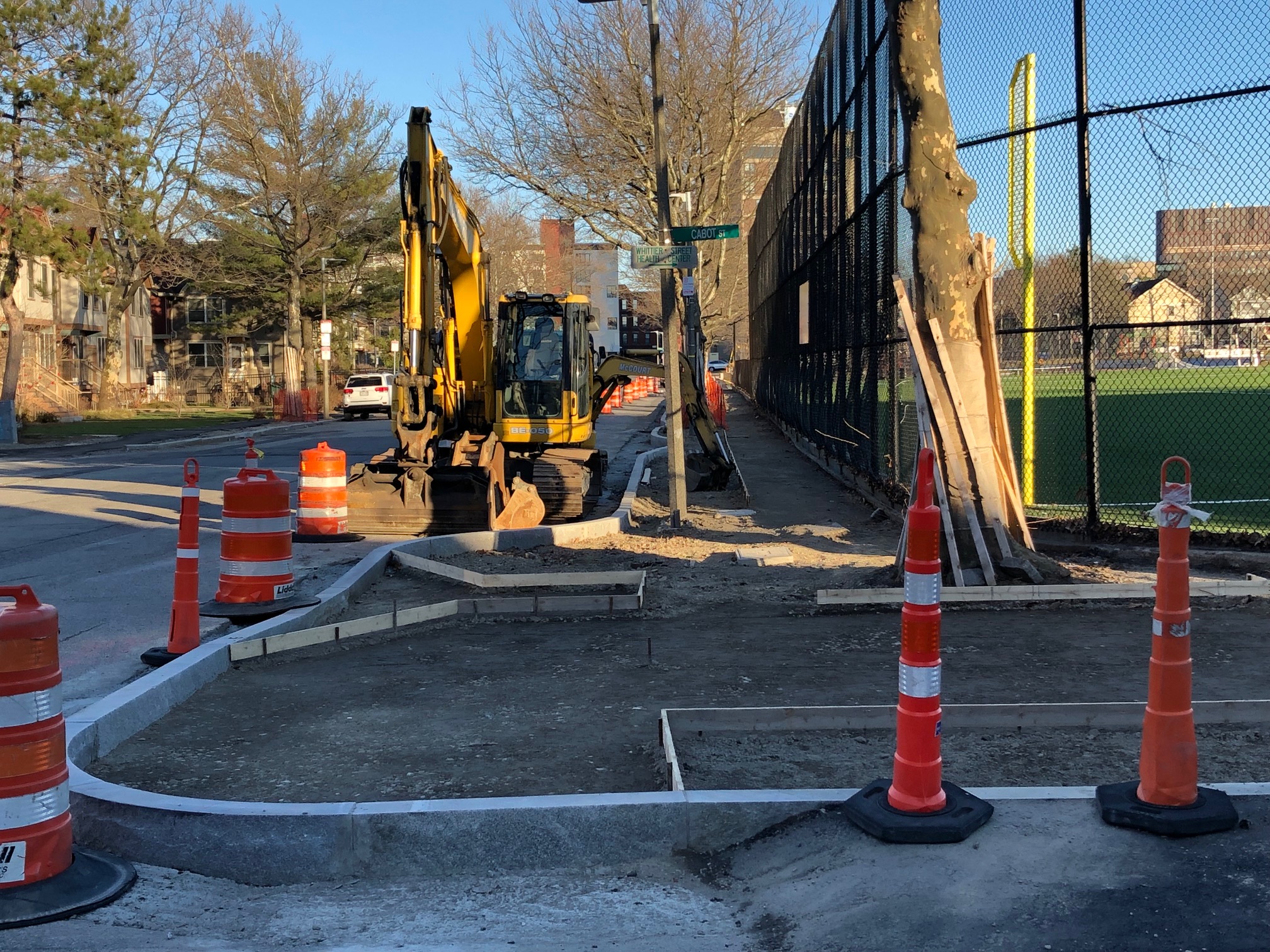Maria Belén Power, a longtime advocate for better, more affordable transit in her home city of Chelsea, earned national recognition earlier this year when the Biden administration appointed her to its new Environmental Justice Advisory Council.
Power has worked for 15 years on immigration reform, public housing, and environmental and climate justice, and is also continuing to serve as the Associate Executive Director of GreenRoots, a well-known environmental justice organization in Chelsea.
Now, Power is competing for another political role – she’s running to win a seat on Chelsea’s City Council.
Power will be on the November 2nd ballot alongside Chelsea’s District 8 incumbent, Calvin Brown.
The following is a transcript from our phone conversation, edited for length and clarity.
Note: This interview reports on Power’s City Council campaign, and does not address her work as Associate Executive Director at GreenRoots. GreenRoots does not extend any candidate endorsements.
You have had a very impressive career thus far – what inspired you to add Chelsea City Council Candidate to your resume?
As a woman, and as a mother of two young children in Chelsea, it feels really important to take action and get involved. I want to be a part of the solutions that we’re demanding. Chelsea is really at a crossroads in a post-Covid world. We were one of the hardest hit cities in the entire nation, and there’s an opportunity to shift and to be more inclusive and more equitable.
Why City Councilor, of all of the possible elected positions in the state?
I think all politics are local. Chelsea is the community where I live, where I work, where I raise my kids. It’s the place where I can have the biggest impact.
What do you plan to accomplish on the council?
Some of my priorities include transit justice; ensuring that Chelsea is not left behind when we’re discussing improving and electrifying the MBTA. Also ensuring that Chelsea is not the dumping ground for the region and that our residents have access to clean air, clean water, and a healthy environment.
I am also very passionate about immigration and worker’s rights, and protecting all residents regardless of race, income, or immigration status. I want to uplift the lives of all essential workers. The housing piece is also a big one. Right now, there’s a huge housing crisis, and it’s incredibly difficult for tenants to afford increasing rents. We really need to prioritize development and creation of affordable housing.
That’s a lot of goals. How do you plan to accomplish these things?
There are a lot of tools that municipalities have. For example with transit, I can prioritize transit advocacy at the state level as a municipal leader. Really taking into consideration the concerns of the residents on the ground. There’s a lot of little conversations going on, and there’s a lot of concerns from residents about affordability. Since immigration is a federal issue, as a council what we can do is create a culture of inclusiveness and protect the lives of everyone, regardless of immigration status.
How has being appointed to the White House Environmental Justice Advisory Council informed your plans for environmental reform in Chelsea?
I think that's backwards. The work that we’re doing on the ground is what’s informing my contributions to the EJ Council. It is the experiences and the struggles that we have fought for so long here in Chelsea. That’s what I’m bringing to the EJ Council. And in shaping how the Biden administration should invest in EJ communities. What does it mean to be an EJ community? What does investment actually mean? It’s really the voices from the people on the ground that I bring to that space.
What work have you engaged in with the Biden Administration thus far?
A lot of it has been around Justice40, the initiative of the Biden administration to invest 40 percent of investments in climate and clean energy into the community and in disadvantaged communities. Some of that has been the nitty-gritty of defining what that means, and making specific recommendations to the administration. What are the types of programs and initiatives that the Biden administration should be investing in on the ground, what should we keep in mind during these investments, what harms could come out of it and how do we mitigate those harms.
What do you hope to achieve on the EJ Advisory Council by the end of your tenure?
I would love to be part of the cohort of members that are able to shift the needle on environmental justice, and take it beyond the rhetoric so it actually has an on-the-ground impact on investments and on communities like Chelsea.
Do you have any thoughts on making any of Chelsea’s major bus routes free?
I have fought very hard for a free or low-income fare. From my experiences working with folks beyond the greater Boston area, the understanding is that free buses are more affordable to manage than a low-income fare. It is more feasible to operate a free bus program than a low-income fare program. The regional transit authorities might have different experiences, but the priority for low-income riders to have access to free or affordable transit is one of my top priorities.
Why is it that a low-income fare ends up being more affordable to the agency than a reduced fare?
The low-income fare program will require an agency to manage it, or will require some sort of proof of income verification. It may be easier for regional transit authorities to do a free bus than to implement a low-income fare. Free buses in the Greater Boston area are definitely needed, and it would be an incredible benefit for the low-income communities to have free buses.
What do you see as the biggest transportation issue in Chelsea?
There’s an issue of not including the voices of Chelsea riders in any transportation planning. That’s a major one, not just listening to the voices, but actually ensuring those voices are shaping and influencing the transportation plans for the MBTA. There needs to be a rebuilding of trust between agencies and communities of color. Folks have been asked over and over again what they think about plans, but those plans don’t actually reflect the input from our communities. How do we include the voices of the people who are most vulnerable?
The other issue is expanding service in Chelsea, and electrifying every bus that comes through. We already have some of the highest rates of asthma hospitalization in the state. Our community should be prioritized.
How do you plan to fix it?
I will keep pushing the MBTA to be as inclusive as it can be. To assess when their plans are not fitting the needs of riders. The other area is really advocating for more investment in public transit so there can be expanded service.
What do you want to do differently than your opponent, incumbent Calvin Brown?
One of the biggest things I have heard on the ground is that we need an active listener who actually takes action on the needs of the district. Making sure that I am engaging in conversations, even when I disagree with the folks who live in my district, is critical. Making sure that I am actually representing the people who live in my district. Being an active listener and an active member of the City Council. The other piece is being willing to take a stand and take a risk, even when it may not be the most popular thing to do.
What housing issues have you pinpointed in Chelsea?
The cost of rent increasing in our community is unsustainable. There needs to be more protections for tenants, and more resources for homeowners. There’s a big issue with quality of housing for low income tenants, so we need to address some of these barriers.
Claire Wallace is a graduate student studying in the School of Journalism at Northeastern University. She enjoys writing freelance pieces regarding politics, lifestyle, travel, and the environment.






